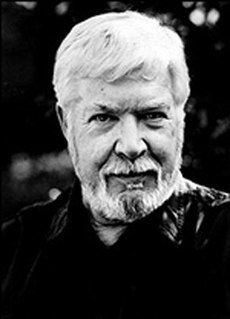A Quote by Alan Coren
Strictly speaking, the land does not exist; it is merely dehydrated sea.
Related Quotes
It is odd to think that there is a word for something which, strictly speaking, does not exist, namely, "rest." We distinguish between living and dead matter; between moving bodies and bodies at rest. This is a primitive point of view. What seems dead, a stone or the proverbial "door-nail," say, is actually forever in motion. We have merely become accustomed to judge by outward appearances; by the deceptive impressions we get through our senses.
The psychotic does not merely think he sees four blue bivalves with floppy wings wandering up the wall; he does see them. An hallucination is not, strictly speaking, manufactured in the brain; it is received by the brain, like any 'real' sense datum, and the patient act in response to this to-him-very-real perception of reality in as logical a way as we do to our sense data. In any way to suppose he only 'thinks he sees it' is to misunderstand totally the experience of psychosis.
It is a curious fact, but nobody ever is sea-sick - on land. At sea, you come across plenty of people very bad indeed, whole boat-loads of them; but I never met a man yet, on land, who had ever known at all what it was to be sea-sick. Where the thousands upon thousands of bad sailors that swarm in every ship hide themselves when they are on land is a mystery.
I have watched the river and the sea for a lifetime. I have seen rivers rob soil from the roots of trees until the giants came foundering down. I have watched shores slip and perish, the channels silt and change; what was beach become a swamp and a headland tumble into the sea. An island has eroded in silent pain since my boyhood, and reefs have become islands. Yet the old people used to say, People pass away, but not the land. It remains forever. Maybe that is so. The land changes. The land continues. The sea changes. The sea remains.
The amazing thing about the sea is that it is perhaps the last truly unexplored frontier; most oceanographers estimate that only about ninety-five per cent of the sea has been studied. Meanwhile, the oceans are believed to contain more animals than exist on land, a majority of which have never been discovered.
This was Mahatma Gandhi’s idea, moving from ownership to relationship—seeing that land does not belong to us. We belong to the land. We are not the owners of the land. We are the friends of the land, like friends of the earth. The fundamental shift is in this consciousness that land does not belong to us, we belong to the land.
If the British march By land or sea from the town to-night, Hang a lantern aloft in the belfry-arch Of the North-Church-tower, as a signal-light,-- One if by land, and two if by sea; And I on the opposite shore will be, Ready to ride and spread the alarm Through every Middlesex village and farm, For the country-folk to be up and to arm.
I should say that the useful results of science had accumulated, but that there had been no accumulation of knowledge, strictly speaking, for posterity; for knowledge is to be acquired only by a corresponding experience. How can we know what we are told merely? Each man can interpret another's experience only by his own.






































